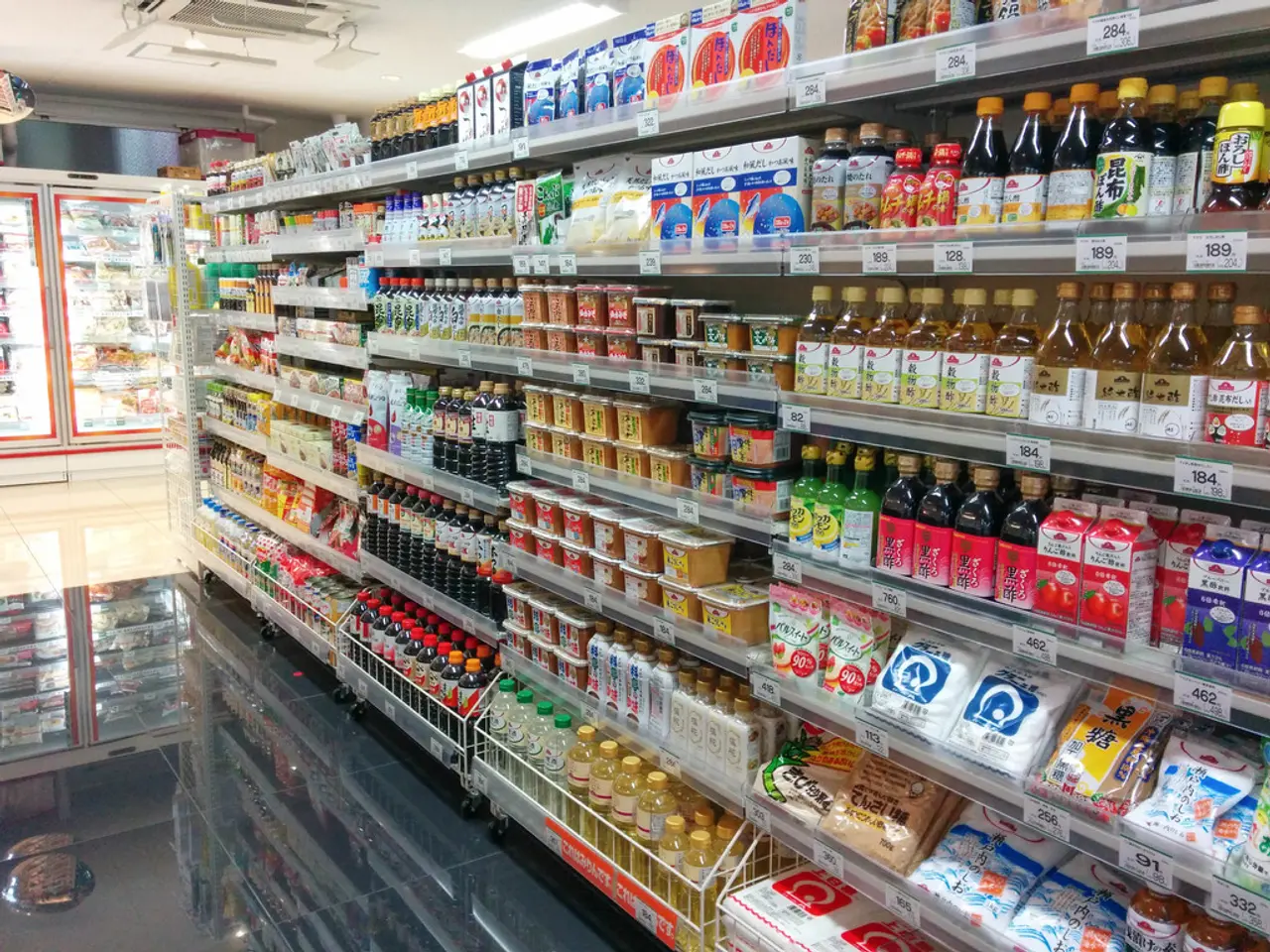Rapid online shopping growth in Saudi Arabia sees a 72% increase, raising e-commerce total to $7 billion in June.
Saudi Arabia is making significant strides in its digital economy, with various initiatives aimed at improving e-commerce and enhancing its cashless society.
One of the latest developments is Saudi Arabia's commitment of $1.4 million to UNCTAD to improve official statistics on e-commerce and the digital economy. This move is expected to provide valuable insights into the growing digital market in the region.
Amazon Payment Services has also joined the fray, adding Tamara as a Buy Now, Pay Later partner across Saudi Arabia and the UAE. This partnership broadens flexible payment options for consumers, aligning with the Kingdom's push towards a largely cashless society.
E-commerce spending in Saudi Arabia via Mada cards increased by 72% year on year to SR25.97 billion ($6.93 billion) in June. This surge in online spending is further evidenced by the 59.4% rise in the number of online payments to 141.55 million transactions.
The Saudi Central Bank (SAMA) has launched a new e-commerce payments interface to improve speed and security for merchants and consumers. Mada, the national payments scheme operated by Saudi Payments, connects banks, ATMs, and point-of-sale terminals, enabling swift, secure processing for in-store and e-commerce purchases.
Mada underpins debit cards issued by local banks, and Mastercard has built local e-commerce processing infrastructure in the Kingdom to keep transactions in-country and support faster, more secure checkout.
The Kingdom's Vision 2030 drive is also pushing towards a largely cashless society. Nearly universally, 99% of Saudi residents are online, and 93% of e-commerce purchases are made on local websites.
Trust is a key factor in the digital economy, and in Saudi Arabia, trust is highest in healthcare and aviation at eight out of 10. This is driven by strong data protection, fair treatment of employees, and consistent, high-quality service.
However, inflation remains a concern for 36% of consumers. Yet, eco-consciousness is strengthening: About 45% actively seek eco-friendly products, and roughly 18% would pay 11 to 20% more for locally sourced or recycled goods.
In the logistics sector, Maersk and Saudi Post have signed a strategic partnership to streamline cross-border logistics and local last-mile networks in Saudi Arabia and the wider Gulf Cooperation Council. DHL e-commerce has also expanded into the Kingdom by taking a stake in AJEX, adding domestic parcel capacity as volumes rise.
Average mobile data use in Saudi Arabia reaches 48 gigabytes per person per month, about three times the global average. This high usage rate indicates a digitally sophisticated consumer base, presenting opportunities for merchants and investors.
The opportunity lies in optimizing mobile journeys, localized payment options, and transparent data-privacy practices that build trust with these consumers. PwC's Voice of the Consumer 2024 survey for Saudi Arabia revealed rising expectations around sustainability, digital innovation, health, and data privacy.
In July 2021, the logistics and payment capacity scaling partnerships in Saudi Arabia and the Gulf region were not explicitly detailed in the provided search results. No direct information about specific companies forming such partnerships at that time is available in the given documents.








